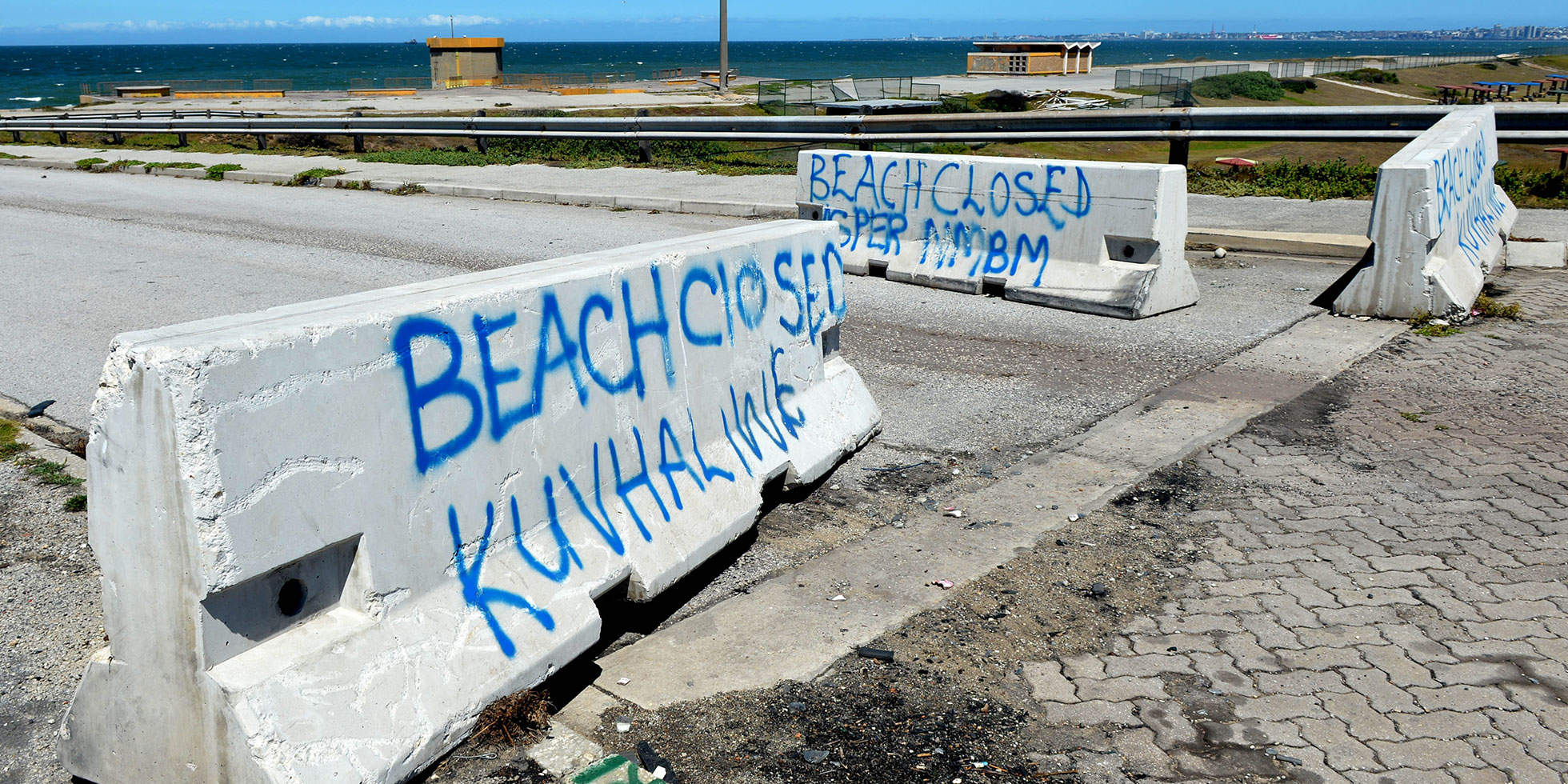It has been ten months since Nelson Mandela Bay’s Brighton Beach was closed after a dangerous sewage spill from the metro’s Fishwater Flats Sewage Works made it unsafe to swim there due to high E. coli levels.
/file/dailymaverick/wp-content/uploads/2025/11/Brighton-Beach-Fishing.jpg)
On Thursday, the metro’s communication department indicated that executive mayor Babalwa Lobishe and member of the mayoral committee for infrastructure and engineering Buyelwa Mafaya were to visit Fishwater Flats and the beach, as “recent testing” indicated that the beach would now be safe.
Despite several efforts, metro director of communications Sithembiso Soyaya has not answered any questions from Daily Maverick.
The beach was closed in December after Fishwater Flats Wastewater Treatment Works, responsible for treating about 64% of the municipality’s wastewater before it is discharged into the marine environment, was the target of extensive cable theft in December last year, leading to a large amount of untreated effluent running into the sea.
The theft of electrical cables that supplied power to the plant and the pilfering of machinery had “disrupted the wastewater treatment processes”.
Site deserted
When Daily Maverick visited the beach last week, the site was abandoned with no security guards in place. Cement barriers, spray-painted with the words, Beach Closed, had been moved aside, making it easy to enter. People were fishing from the pier and a man was spotted smoking something in one of the bathrooms. Parts of the buildings appeared to have been vandalised.
/file/dailymaverick/wp-content/uploads/2025/11/Brighton-Beach-Bathrooms2.jpg)
Onele Kulu from ASC Food Safety and Public Health Consultants said they were conducting a water safety study at Brighton Beach, with final sampling due later this month. He said July tests still showed dangerously high E. coli levels, though results had since improved. Their most recent October sampling indicates that water quality is improving rapidly — but, Kulu said, it’s still not safe for swimming.
Kulu said he would not recommend swimming there, adding that there were safer beaches around. He also cautioned against eating fish caught in the vicinity of the beach.
In December 2024, Brighton Beach was closed after high levels of E. coli in the seawater posed a threat to the health of beachgoers.
Read more: Nelson Mandela Bay beach closed after high levels of E. coli detected
At the time, ASC’s report produced for Brighton Beach showed “alarmingly high levels” of contamination, with results exceeding Blue Flag standards by 40 and 92 times.
“Such extreme contamination levels suggest a direct influx of untreated sewage, likely exacerbated by an ageing infrastructure and stormwater runoff. The health risks here are severe, rendering the beach unsafe for recreational use. Community members who use this beach for spiritual purposes, as observed during one of the visits when samples were collected, are at significant risk of exposure to waterborne pathogens,” the report said.
Call for intervention
/file/dailymaverick/wp-content/uploads/2025/11/Brighton-Beach-Bathrooms.jpg)
Earlier this year, DA mayoral candidate for Nelson Mandela Bay Retief Ondendaal called on the national government to intervene in the metro’s sewage crisis.
“Wastewater treatment facilities in Nelson Mandela Bay continue to face serious challenges, exposing the complete dysfunctionality of the current ANC-led administration. Years of neglect and failure to maintain, upgrade and protect critical sewerage infrastructure have led to persistent pollution of our waterways and coastline,” Odendaal said.
“Given the municipality’s track record of failing to provide transparent and reliable water quality data, we have called on the minister’s department to conduct its independent water quality testing at Brighton Beach.
“To ensure public safety, the DA will also undertake independent water sampling, with results to be made available to the public.
“The problems are not limited to Fishwater Flats. Sewage spills, failing stormwater drains and dysfunctional wastewater facilities are widespread across the city. The municipality bears primary responsibility for this persistent pollution, and the people of Nelson Mandela Bay have a right to expect transparent reporting and urgent action.
Read more: Kings Beach clean for now, but sewage spills still threaten Nelson Mandela Bay
In July, Minister of Water and Sanitation Pemmy Majodina, answering a question in Parliament, said: “Sewage infrastructure has been vandalised, and substandard discharges have occurred [in Nelson Mandela Bay]. However, the DWS has not laid any criminal charges against [the Nelson Mandela Bay metro] for sewage pollution. This is because [the municipality] is acting responsibly towards addressing the challenges of vandalism and poor performance of sewage treatment.
“[The municipality] has committed to improved security and commissioned a two-year programme to refurbish the components of the wastewater treatment works and sewage pump stations damaged by vandalism,” she said. DM





 Kyran-BeachReadiness
Kyran-BeachReadiness